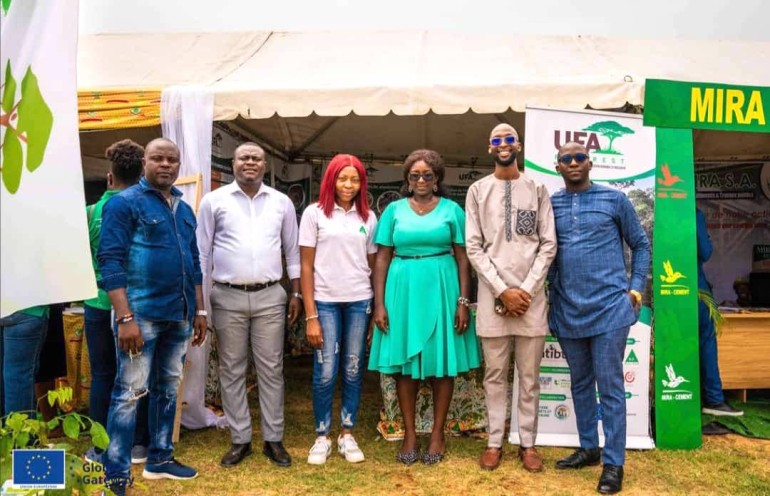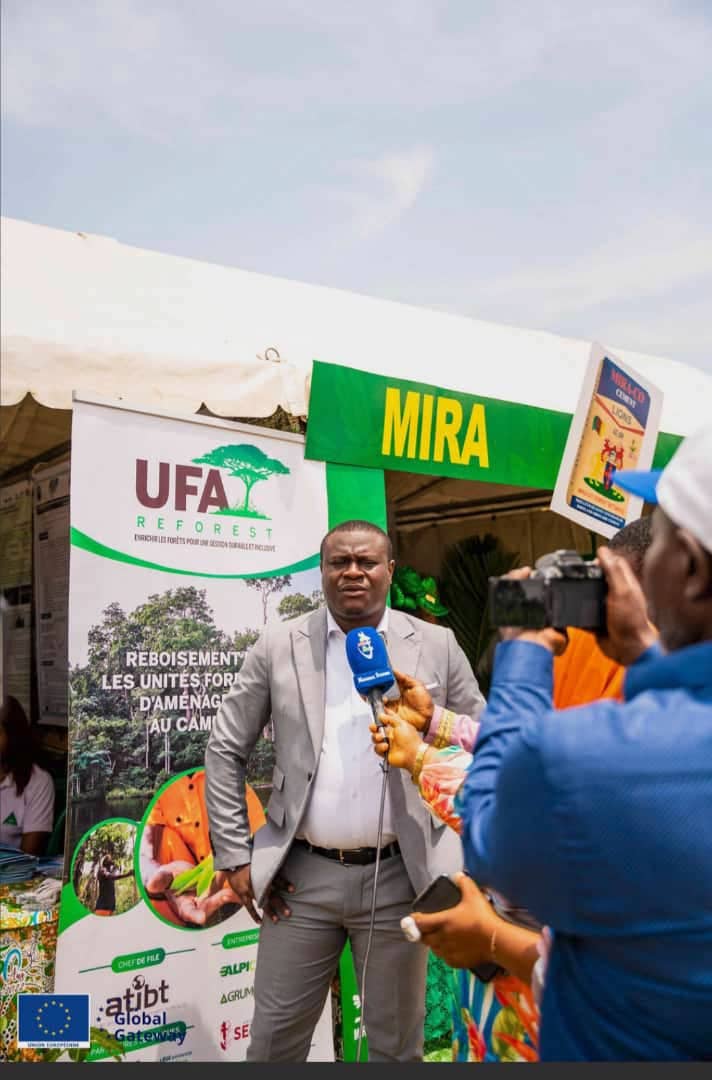

28.03.2025
Following the invitation of the Ministry of Forestry and Wildlife (MINFOF), the International Technical Association of Tropical Timber (ATIBT) participated in the celebration of International Forest Day on March 21, 2025 in Douala, under the theme of Forests and Food.

ATIBT took advantage of this opportunity to present the reforestation activities carried out by the UFA-REFOREST project in the Forest Management Units of Cameroon. Financed by the European Union, the UFA-REFOREST project benefits from the support of its technical partners Nature Plus Asbl, Gembloux Agro Bio Tech and ENSET of the University of Douala. Four forestry companies benefit from this project (PALLISCO, AlpiCAM-GrumCAM, SEEF and SEFAC).
The participation of the UFA REFOREST project in the International Day of Forests alongside certain partners (PALLISCO, ENSET of the University of Douala, RESSAC Program) provided an opportunity for the project to present the planting activities carried out within the forest concessions by running a stand. The project manager, Yanick NKOULOU, presented the plantation activities that are part of the solutions to ensure the sustainability of forest resources in Cameroon.

This activity also made it possible to share the experience of the project with the general public, who came in large numbers for the occasion, on the different stages of reforestation and to present the initial results.
Particular emphasis was placed on the choice of species to be reforested.
The following criteria guided the choice of species to be planted:
- Species with a low rate of reconstitution: Abalé, ayous, fraké, kossipo, iroko, mambodé, moabi, okan, tali, tiama, etc.
- Species with a High Conservation Value: Assamela, ayous, fraké, iroko kosipo, sipo, kosipo, tali, tiama, etc.
- Less well-known species (LKTS): Osanga, Eyek, Mubala, Eveuss, etc.
- Marketable species: Pao rosa, bossé, dabéma, movingui, lati, bibolo, okan, sapelli, etc.
- NWFPs and special species: Andok, djansang, afrotyrax, apka, essessang, ebony, etc.
Now in its third year, the project has already achieved some success. The project oversees 5 functional nurseries with a total capacity of 170,000 plants, with an annual production of 140,000 plants. The project benefits from the support of local communities, including women and indigenous peoples, in the collection of forest seeds and in all activities related to the production of plants in nurseries and planting in forests. To date, just over 200,000 trees have been planted during the first three years of the project. Plantations are being established in three types of planting areas: degraded areas where plots have been set up, logging gaps and forest parks. It should be noted that to date, around 900 hectares of forest have been restored in all the forest management units of the forestry companies benefiting from the project. The project benefits from the collaboration of the forestry administration and also involves the private forestry sector of Cameroon in exchanges and field visits. Discussions on regulatory incentives for reforestation are also taking place with the administration in charge of forests.
In order to ensure the long-term future of this reforestation initiative in the forest management units, several stakeholders must be involved in order to contribute effectively to the restoration of the forests in Cameroon, in particular the forestry administration, the private forestry sector, local communities and technical and financial partners.